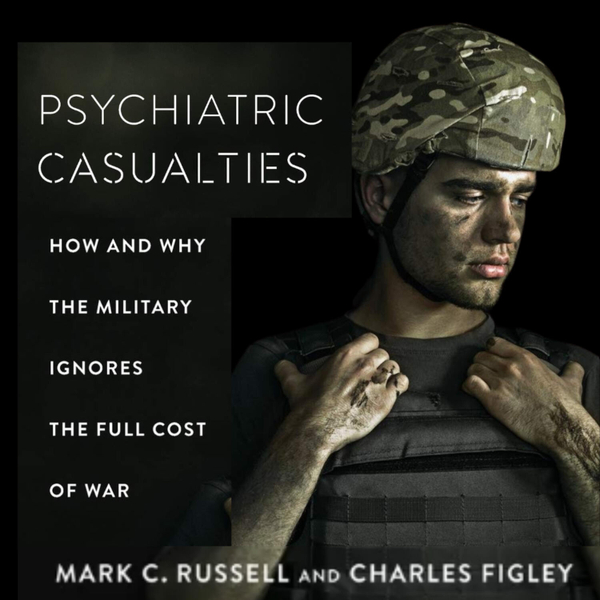
Transparency and Accountability of Learned Lessons of War
- S1E18
- 57:42
- November 8th 2024
This week's episode pivots around the military's tactics of delay and deception in addressing the psychological impact of warfare, exploring how these issues ripple through generations of military families. They discuss the historical context of mental health care in the military, revealing shocking truths about the lack of transparency and accountability. As they navigate through personal anecdotes and professional insights, they call for a cultural shift in how mental health is perceived and treated within the armed forces. This episode is a must-listen for anyone invested in the well-being of veterans and their families, as well as those interested in the broader implications of mental health care in society.
Table of Contents for Discussion
For further insights and to join the conversation, reach out to Mark at [email protected]. Your engagement can help pave the way for a future where military mental health is no longer a silent battlefield.
Psychiatric Casualties
This podcast is a clinical exploration into the untold truth of military mental healthcare from two insiders. Join Navy Veteran and psychologist, Mark Russell and Marine Veteran and psychologist, Charles Figley as they explore evidence of preventable generational wartime mental health crises, the "dark side" of the military's long-standing strategies to deal with its mental health dilemma, and what is required to truly transform behavioral health both within and outside of military populations.
***Some of the subject matter can be intense and potentially triggering.***
Have questions or comments? Email Dr. Mark Russell at [email protected]
Dr. Figley is the Tulane University Paul Henry Kurzweg Chair in Disaster Mental Health. Professor Figley is recognized as one of the foremost experts on trauma and is the recipient of numerous lectureships and other honors in the US and throughout the world. He has published more than 200 refereed journal articles, 29 books, more than 540 presentations, and more than 110 book chapters in his long career. His work draws collectively on more than 37 research projects focusing on traumatic stress, and resilience of individuals, families, and communities. Dr. Figley co-authored Psychiatric Casualties: How and Why the Military Ignores the Full Cost of War with Dr. Mark Russell.
Professor Figley credits his nearly four years in the USMC with maturity building and early insights about human stress and coping and influenced his career as an academic focusing on traumatic stress and the impact on service providers. This, in turn, led to his life-long effort to study the human side of being and caring for others, including war veterans and their families. Today, given his 5 decades as a professor, an author, presenter, and humanitarian, he is considered the “father of trauma” by the American Psychological Association.
Mark is a retired Navy Commander and clinical psychologist with over 26-years of military service including 10-years as an enlisted Marine. He is dual-Board certified by the American Board of Professional Psychology (ABPP) in clinical psychology and clinical child and adolescent psychology. Co- author of Treating Traumatic Stress Injuries in Military Personnel: An EMDR Practitioner’s Guide (Routledge, 2013) and Psychiatric Casualties: How and why the military ignores the full cost of war (Columbia University Press, June 2021) with Charles Figley, and co-authored Eye Movement Desensitization and Reprocessing (EMDR therapy): In 2005, Commander Russell became a military whistleblower after filing a Department of Defense Inspector’s General complaint against the head of military medicine for “harmful gross negligence” resulting in a preventable military mental health crisis. His efforts were featured in USA Today (2007); the 2015 documentary film, Thank You for Your Service! and the 2022 documentary Strangers at Home. He was awarded the Distinguished Psychologist Award by the Washington State Psychological Association and the Meritorious Service Medal by the President of the United States for his sustained effort to transform military mental healthcare, as well as the recipient of the 2018 Outstanding Service in the Field of Trauma Psychology by the American Psychological Association Division 56 Trauma Psychology.